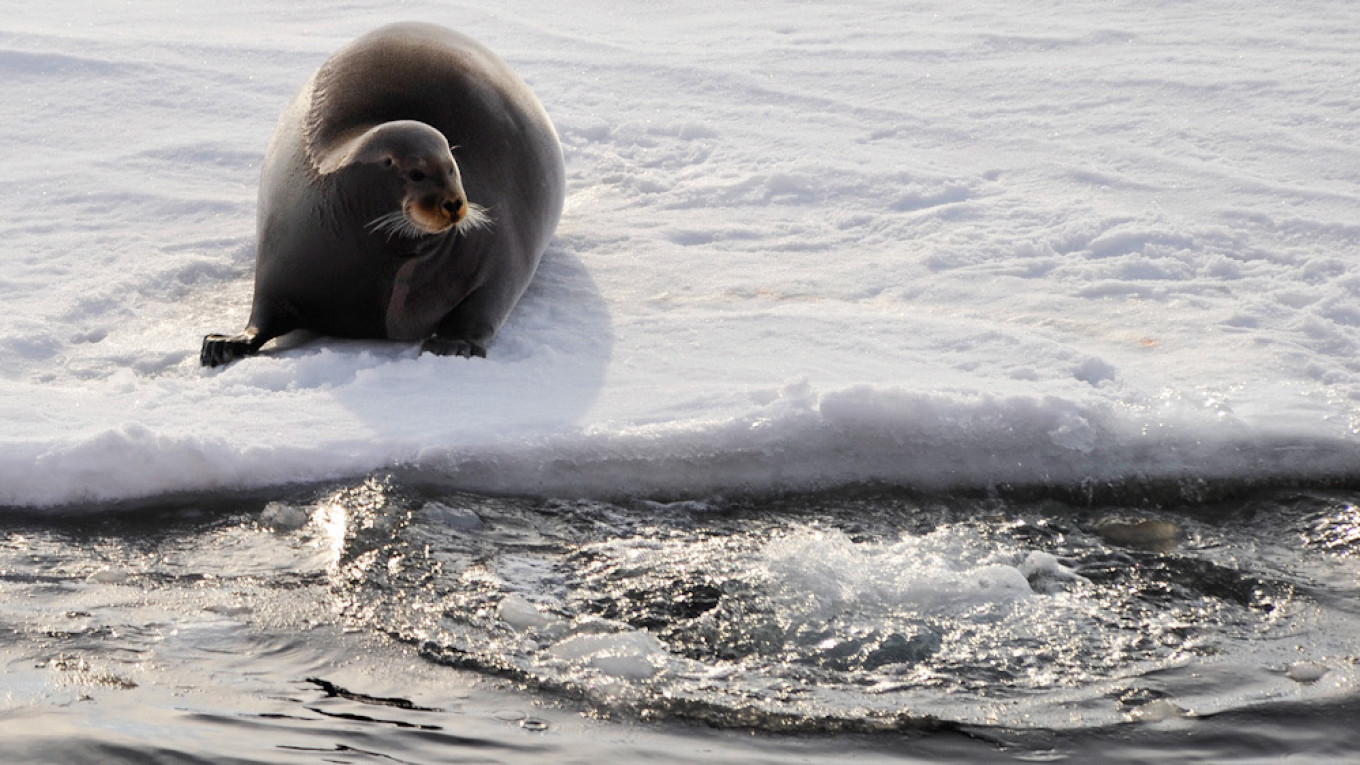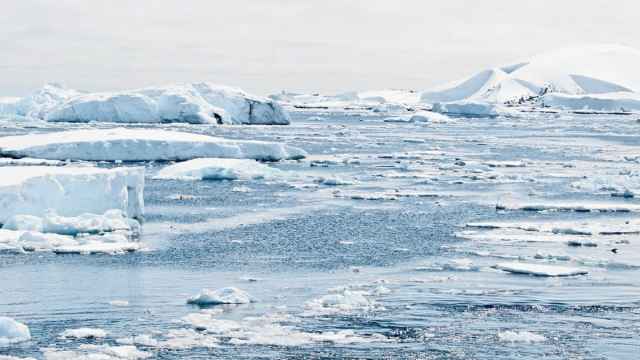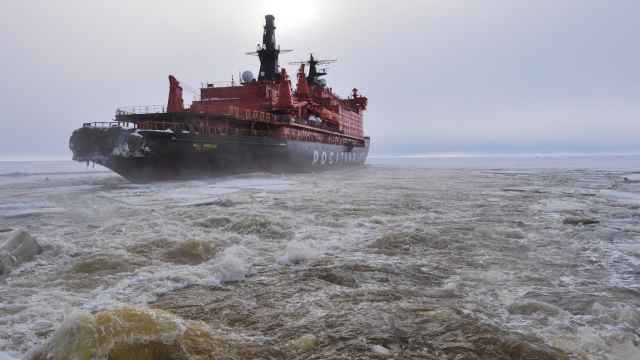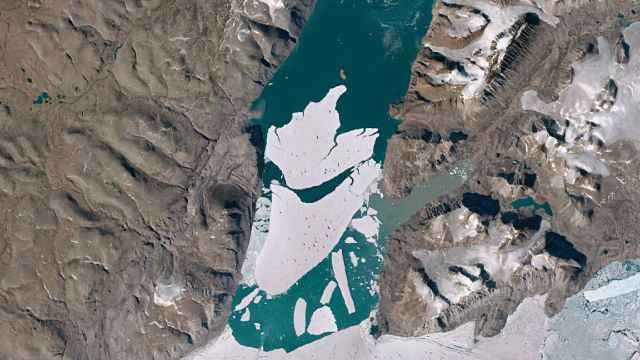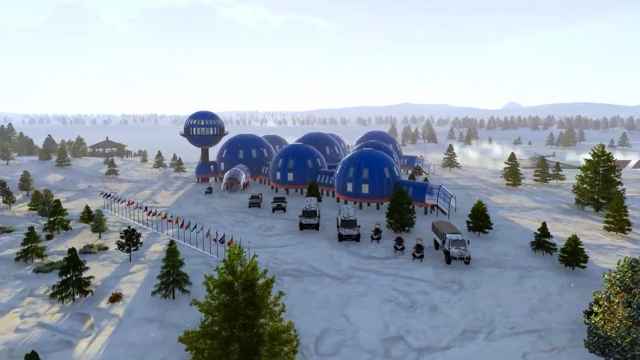A sea in Russia’s Arctic known as the “birthplace of ice” could break ice melt records for a second consecutive year in 2021, climatologist Zachary Labe of Colorado State University tweeted Tuesday.
In 2020 the Laptev Sea stayed ice-free until November for the first time in documented history. The sea, which plays a crucial role in generating ice coverage for the entire Arctic, has broken another record with its annual ice melt starting earlier in the spring than ever before.
“We are off to a record-breaking start to the sea ice melt season in the Laptev Sea (again),” Labe tweeted, citing data from the U.S. National Snow & Ice Data Center (NSIDC).
The ice-free season in the Laptev Sea, located between the Kara and East Siberian seas, has grown longer in recent decades, a pattern that is likely to continue for the rest of the century, Labe told The Guardian in October.
Scientists have warned that summer sea ice in the Arctic, a region which is warming three times faster than the rest of the planet, could disappear completely by 2035.
If the Laptev Sea’s ice-free season continues to get longer, newly formed sea ice will not be able to spread to other parts of the Arctic Ocean before another melting season starts, threatening the region’s ecosystem, scientists say. A loss of ice from the Laptev Sea could also cause ice in other regions to melt faster by exposing more dark ocean surface to sunlight and creating a feedback loop of accelerating warming.
The latest record comes amid a series of abnormal heatwaves and extreme weather events like wildfires and droughts in Siberia and the Arctic that have been linked to climate change. During last month’s heatwave along Russia’s Arctic coast, the shores of the Barents Sea saw hotter temperatures than beaches in Italy and southern France.
A Message from The Moscow Times:
Dear readers,
We are facing unprecedented challenges. Russia's Prosecutor General's Office has designated The Moscow Times as an "undesirable" organization, criminalizing our work and putting our staff at risk of prosecution. This follows our earlier unjust labeling as a "foreign agent."
These actions are direct attempts to silence independent journalism in Russia. The authorities claim our work "discredits the decisions of the Russian leadership." We see things differently: we strive to provide accurate, unbiased reporting on Russia.
We, the journalists of The Moscow Times, refuse to be silenced. But to continue our work, we need your help.
Your support, no matter how small, makes a world of difference. If you can, please support us monthly starting from just $2. It's quick to set up, and every contribution makes a significant impact.
By supporting The Moscow Times, you're defending open, independent journalism in the face of repression. Thank you for standing with us.
Remind me later.


